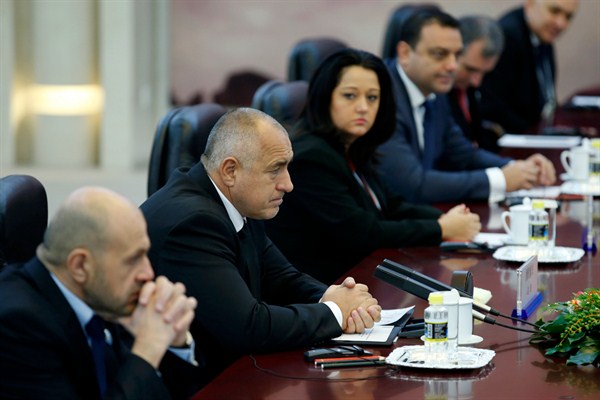Twenty-five years after the fall of communism and almost 10 years after gaining membership in the European Union, Bulgaria is plagued by widespread corruption, misappropriation of public funds and vote-rigging in nearly every election. Many Bulgarians say their country’s democracy is in shambles. The past several years were marked by widespread protests and a banking crisis that forced former Socialist Party Prime Minister Plamen Oresharski to resign in 2014 after little more than a year in office. Bulgaria, the EU’s poorest country, is now on its fifth government since 2013. But despite changes in leadership, voters continue to express their apathy and sense of disenfranchisement.
The latest cause for concern was an attempt to push through much-needed judicial reforms. In early December, the country’s justice minister, Hristo Ivanov, resigned after the National Assembly, Bulgaria’s parliament, voted for what he called watered-down constitutional amendments, which were originally designed to overhaul the corrupt judiciary and increase transparency. The National Assembly’s failure to pass robust judicial reforms sparked further protests and strained the relationship between Prime Minister Boyko Borisov’s conservative GERB party and other members of the ruling coalition.
Some reforms did pass, however. Bulgaria’s Supreme Judicial Council was split into two separate entities, a move officials say will bolster judicial independence and curb corruption. But critics complain that the country’s prosecutor general, Sotir Tsatsarov, continues to wield excessive power. The judicial reforms rejected by the National Assembly would have loosened Tsartsarov’s grip on the judiciary by increasing parliamentary oversight and allowing lawmakers to appoint half of all prosecutors and judges.

